Photographs: Reuters Nitin Sethi in New Delhi
At the moment, more than a 100 GM food crop varieties are moving through the experimentation pipeline and could fundamentally change the nature of food crops and production in the country.
Prime Minister Manmohan Singh can be assertive when he chooses to. He has certainly imposed his will on the government to push the case for the controversial genetically-modified (GM) food crops.
Documents reviewed by Business Standard show, for almost two years, Singh and his office have been the moving force behind the decision to go ahead with field trials of GM crops, including food crops, without awaiting regulatory reforms or the conclusion of the ongoing case before the Supreme Court.
"Manmohan Singh remained consistent in his insistence about paring the food security Bill and in his advocacy for GM crops," said a senior official in the United Progressive Alliance (UPA) government.
The Prime Minister's Office (PMO) declined to comment on detailed queries sent by Business Standard.
...
PM gave the nod for controversial GM food crop trials
Photographs: Gary Cameron/Reuters
Singh had prevailed in the face of stiff opposition from the Union environment & forests minister, Jayanthi Natarajan, before she was shunted out on December 21 last year. When she resigned, stories were leaked about Natarajan having delayed decisions, sat on files and held up projects.
She was left to defend herself as Congress Vice-President Rahul Gandhi, a day after her resignation, told industry he preferred a more efficient environmental clearances system.
In fact, being on the wrong side of the debate with the PM over GM crops likely was another factor in her being moved out. Natarajan was replaced by M Veerappa Moily.
In February, the PM said at a public meeting: "While safety must be ensured, we should not succumb to unscientific prejudices against Bt crops."
With one broad stroke, Singh had coloured all opposition to the immediate approval for GM food crop trials as "unscientific".
...
PM gave the nod for controversial GM food crop trials
Photographs: Cheryl Ravelo/Reuters
This included the oppositions from Natarajan, the Parliamentary standing committee on agriculture, the majority of a Supreme Court-appointed expert panel and several state governments.
A couple of weeks later, Moily delivered the goods for the PM. He overruled his predecessor and extended the validity of approvals already granted to GM food crop trials, calling the move a "routine decision".
Moily said the clearances had been pending for long and were not banned by the apex court as his predecessor had wrongly believed. It was a smart wordplay. Those had not been Natarajan's grounds.
Moily also instructed the environment secretary to sit with the Cabinet secretary and other officials to take a unified position before the Supreme Court. It meant agreeing to the views of Agriculture Minister Sharad Pawar and the PMO.
He and the environment secretary said Natarajan had not been against a joint affidavit. Again, a clever finesse: Under pressure from PMO, she had relented days before resigning and agreed to a joint affidavit but only after insisting on a temporary moratorium on field trials of GM food crops.
...
PM gave the nod for controversial GM food crop trials
Image: Activists present the GM free Brinjal Bouquet to MLAs in the State to protest against GM food crop commercialisation and research in TN.Photographs: Courtesy, Greenpeace
The debate over introduction of GM food crops in India has remained as polarising as that on nuclear power, another instance when the prime minister showed plenty of assertive self.
The GM crop industry, many scientists in the field, the Union agricultural minister, the prime minister and some states believe GM crops would rejuvenate agricultural productivity and lead to food security.
The other side is packed with certain Congress leaders, most state governments, some political parties, scientists, academicians and green activists who remain sceptical.
More importantly, they are wary of the unassessed and potentially irreversible damaging impact of releasing GM on people and environment.
…
PM gave the nod for controversial GM food crop trials
Image: Students from the department of environment studies pose with their painted faces during a protest against 'bacillus thuringniensis' Bt brinjal in Chandigarh.Photographs: Ajay Verma/Reuters
At the moment, more than a 100 GM food crop varieties are moving through the experimentation pipeline and could fundamentally change the nature of food crops and production in the country.
Days before her resignation, in a three-page note, Natarajan had said: "Despite my insistence that the environment ministry should file a separate affidavit, it has been felt the government should not be seen at cross-purposes and that a common affidavit should be filed."
She wrote this as part of a three-page note to counter the PM and the agriculture ministry's insistence to go to the Supreme Court advocating GM crop food trials, without awaiting reforms or review of the regulatory process.
The majority report of the Supreme Court-appointed expert panel (Technical Expert Committee) had come out in 2013, demanding radical regulatory reforms and recommending a moratorium on field trials till that happened. The agriculture ministry and the department of science & technology was dead set against it.
…
PM gave the nod for controversial GM food crop trials
Image: Prime Minister Manmohan Singh.Photographs: B Mathur/Reuters
PMO wades in
The prime minister stepped in for the first time when the Supreme Court panel filed its interim report in October 2012, recommending a moratorium on crop trials.
Records show Natarajan relented from her strong on-the-record and oft-repeated position against an immediate go-ahead to the GM crop trials after a conversation with the prime minister.
She wrote: "It is not possible for the Ministry of Environment & Forests to accept the stand of the agriculture ministry that GM crops or field trials can be allowed at this time. I am also of the view that the report of the panel (advocating the moratorium) should be accepted."
But, she changed her view the same day, noting it was done after a discussion with the prime minister, of which the environment secretary and the Cabinet secretary, too, were aware.
…
PM gave the nod for controversial GM food crop trials
Image: Jayanti Natarajan.Photographs: Getty Images
The agriculture ministry then filed an affidavit on behalf of the Union of India that opposed the interim report and got another expert nominated on board the apex court's panel - a retired government agriculture scientist.
When this panel filed its final report, this one member filed a dissenting report against a moratorium on trials. All the other five members unanimously reiterated the need for a moratorium.
Natarajan also took the position that no clearances should be given by her ministry's statutory Genetic Engineering Appraisal Committee for field trial proposals till the Court takes a final call.
By November 2013, the time had come to respond to the final report of the apex court panel. The agriculture ministry again provided the position that the Union government should take before the apex court. It trashed the panel's majority report and backed the one-member dissent report advocating a go-ahead for the GM crop trials.
…
PM gave the nod for controversial GM food crop trials
Image: A farmer inspects his paddy field in Taragarh village, near Amritsar.Photographs: Munish Sharma/Reuters
The environment ministry baulked at the idea. Even junior officers in the ministry warned the position seemed only a rehash of previously stated facts and it "gives the impression that the strategy is to reject the majority report".
The officer noted it was unlikely the Supreme Court would reject the majority report and advised it would be better to clearly state what reforms would be undertaken before trials are approved.
But, under PMO's instructions, the Cabinet secretary continued to meet to draw up a common affidavit. He reported to the PM directly at times. Business Standard has reviewed some of the affidavit drafts.
The fundamental differences could not possibly be resolved till Natarajan keeled over. She kept reiterating her basic opposition to this. She again spoke to the principal secretary to the prime minister on the need for a differing view. The matter was resolved when she was asked to quit.
The government has begun giving clearances - fresh ones are expected in April, even as the UPA government's tenure comes to an end soon - while the Court has yet to give its judgment. The Parliamentary standing committee on agriculture has castigated the UPA government for going ahead with the GM crop trials in its latest report.
…
PM gave the nod for controversial GM food crop trials
Image: 100-odd GM food crops in the pipelinePhotographs: Munish Sharma/Reuters
FIELD DAY
Some of the 100-odd GM food crops in the pipeline:
Rice, wheat, okra, onion, groundnut, bamboo, tomato, apple, cucumber, sugarcane, cabbage, cauliflower, tea, coffee, corn, ginger, ragi, yam, castor, sunflower, mustard, black pepper, pea, soybean, papaya, cardamom, carrot, banana, tobacco, orange, pearl millet, potato and pulses
The few states ready to permit food crop trials
- Andhra Pradesh
- Gujarat
- Punjab
- Rajasthan
VARIED VOICES
- Parliamentary standing committee: Stop food crop trials, complete overhaul of regulations
- Supreme Court expert panel's majority report: Moratorium on food crop trials till there's complete overhaul of regulatory reforms and testing systems are made clear; ban some trials
- Supreme Court panel's minority one-member report: Go ahead with trials; some reforms can happen later
- Union agriculture ministry: Go ahead with trials; some reforms can follow; not bound by time
- Environment ministry (under Natarajan): Follow the Parliamentary standing committee and the SC majority report; no clearances till apex court decides; should take before SC a view other than agriculture ministry's
- Environment ministry (under Moily): SC has not banned trials; go ahead with trials while the agriculture ministry takes the lead before the Supreme Court
- Prime Minister's Office: Single view of agriculture ministry and department of biotechnology should prevail, environment ministry should agree; trials should go on

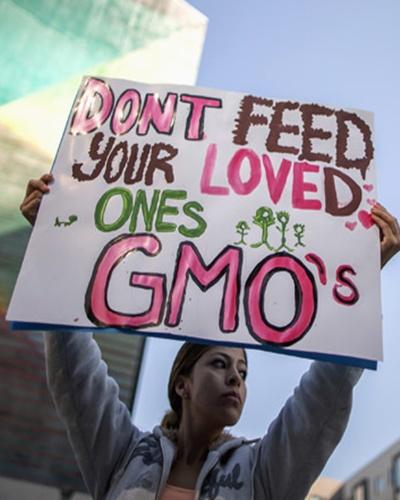
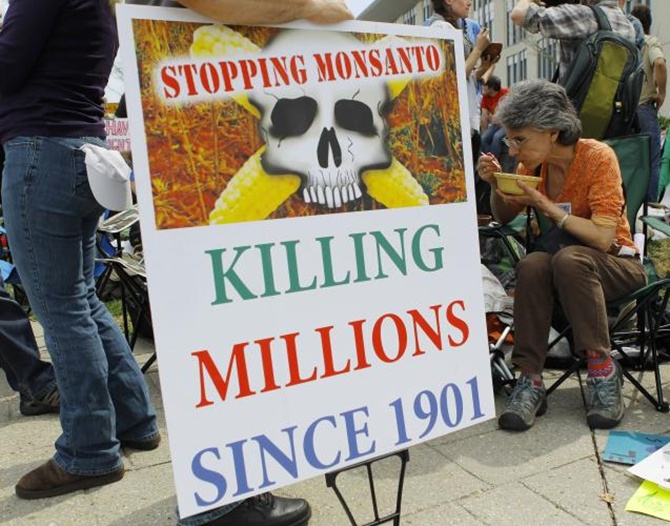
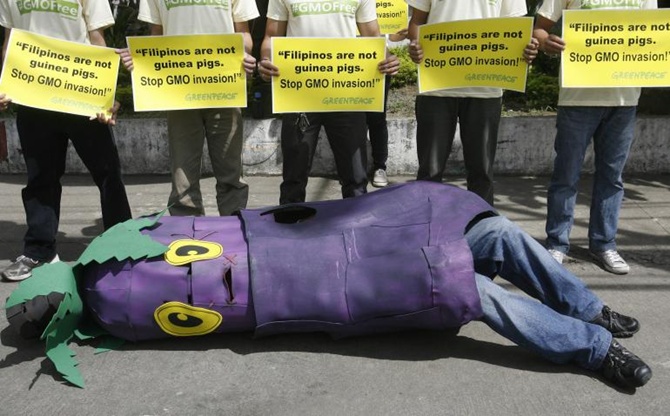
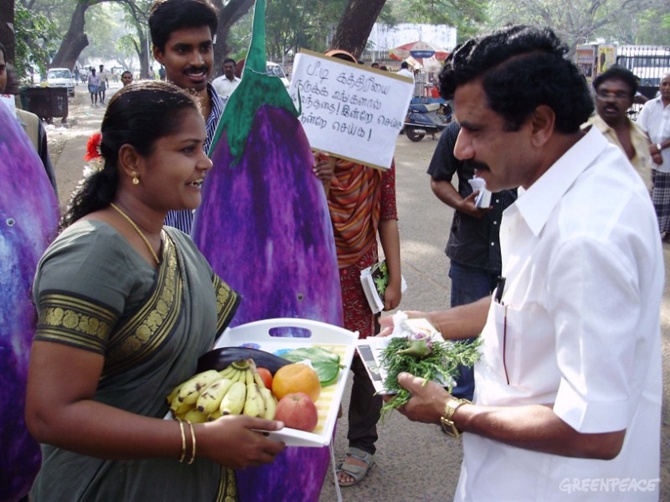

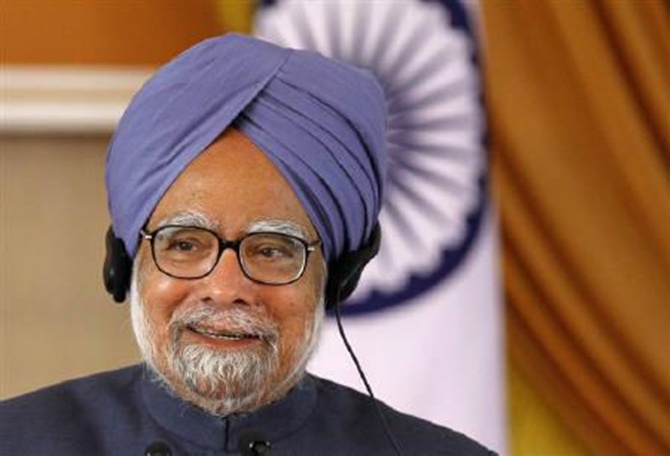
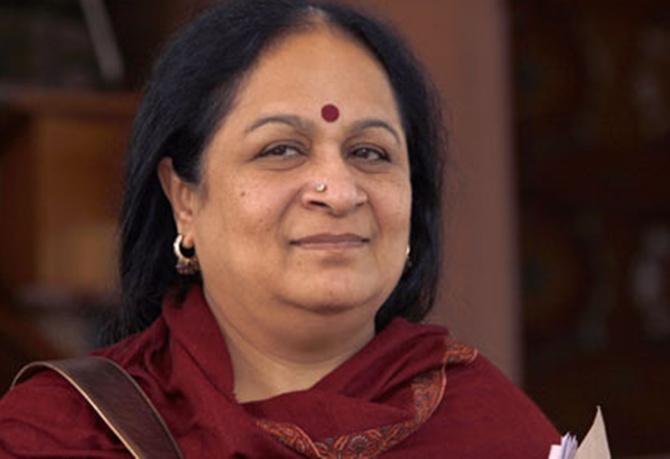
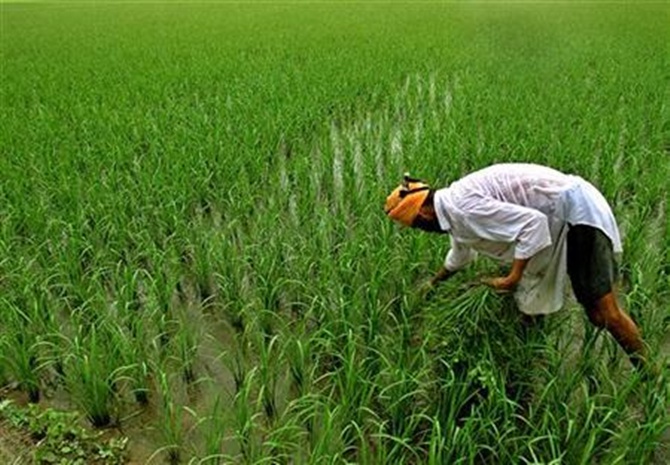
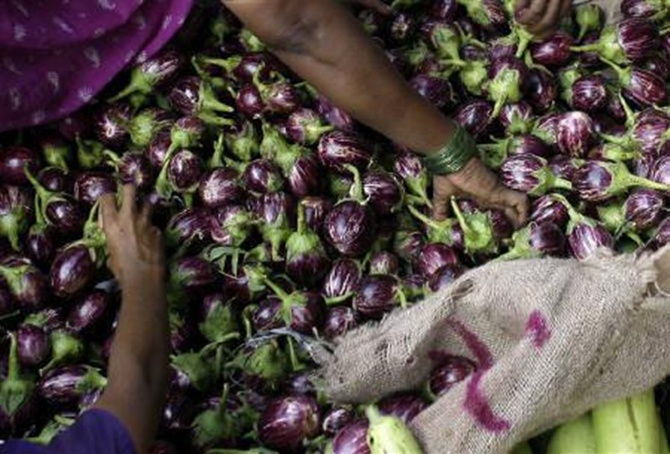

article